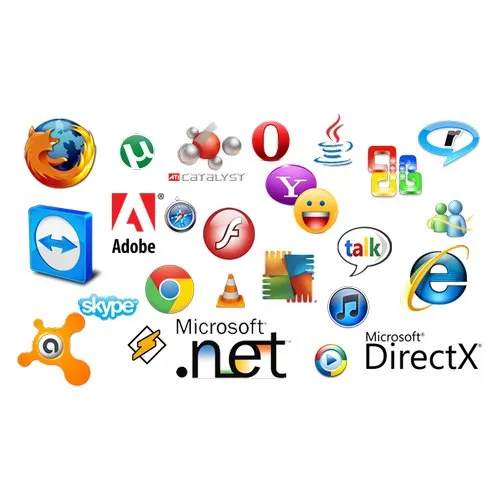Application software refers to programs that perform specific functions that make computing and technology simpler for users. Examples include word processors, web browsers, image editing software, communication platforms and gaming solutions.
App-building software can be utilized by individuals as well as large organizations alike, depending on your unique business model and desired outcomes. When selecting the ideal platform for you, take into consideration your desired results as well as any limitations in time or resources available to you.
Multimedia
Multimedia refers to an umbrella term covering a range of applications from photo editing programs and website design, through photo sharing sites to web browser extensions. Most multimedia applications share one characteristic in common: using graphics, audio, video and text to convey information. Multimedia software is utilized by both professionals as well as everyday users alike – from creating animated cartoons for TV to sending emotive GIFs over group chats.
All multimedia creations contain some form of text. This may appear in various fonts and sizes to complement the multimedia software’s professional presentation, or may provide specific information or supplement the information found elsewhere.
Non-linear multimedia is the go-to medium for information delivery, allowing viewers to navigate between sections with ease and fast forward or rewind at will. Common examples include movies on DVD and game CDs. Non-linear multimedia is also utilized in hospitals for real-time monitoring of patients and training medical staff or providing presentations to large audiences.
Communication
Communication application software encompasses an expansive set of systems and apps designed to facilitate file and text messaging between devices – be it texting, voice calling, audio streaming or video. Such platforms and tools may include unified communications platforms, collaboration tools, document management systems, project planning features or customer support features.
Communication application software not only serves as a central repository for team members to exchange files, but it may also enable virtual meetings and webinars – helping companies get through coronavirus shutdown more easily while increasing employee productivity by keeping everyone connected.
Application software is tailored to meet the unique requirements of end-users and help them complete specialized activities across industries and fields of work. Programs like Microsoft Office or LibreOffice offer such solutions; others might come as standalone apps such as word processors, spreadsheets or music players. Some apps may even communicate between each other using APIs (application programming interfaces); this interprocess communication can facilitate intricate business transactions.
Business
Application software programs are created with the end-user in mind and serve a range of personal, educational, and business functions – from word processors like Microsoft Word to management databases like Customer Relationship Management (CRM) or Enterprise Resource Planning systems.
Appointment calendars, notepads and slideshow software applications such as PowerPoint are among the many examples of tools used by businesses to manage projects, schedule work and increase productivity. These applications help manage projects more effectively as well as communicate between coworkers while increasing overall productivity.
Business application software may come either pre-configured for standard businesses or customized to a unique business’s requirements, with our team helping to find the ideal solution to suit them both. If problems arise, they’ll quickly be addressed by one of our IES team members – don’t wait – get one today!
Gaming
Gaming software is used to assist people playing computer games. It can help create or modify game levels, provide cheats and hints, as well as connect with friends online while others offer solo playability. There are various types of gaming software ranging from desktop applications to mobile applications designed specifically for gaming use; each offering their own advantages in playing.
Building a software game involves various creative arts disciplines and technical issues in its creation, leading to fragmented approaches and results in research approaches and results. This article investigates some open research questions in the field.
Gaming software can be installed on various types of hardware devices, such as video game consoles, computers, handheld devices and personal digital assistants (PDAs). Some versions work across platforms while others only run on one. Some gaming software even provides training or tips designed to improve one’s skill levels.





